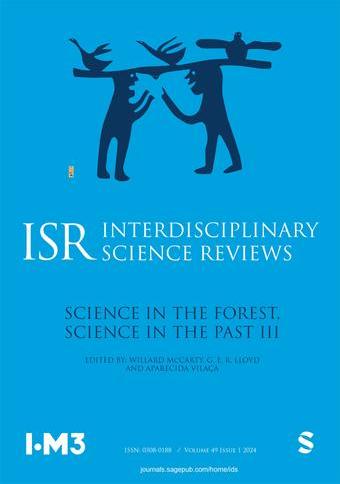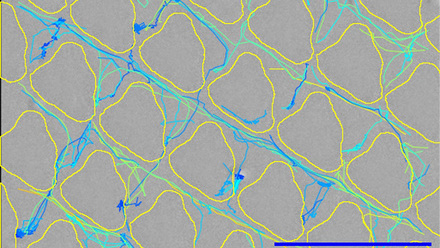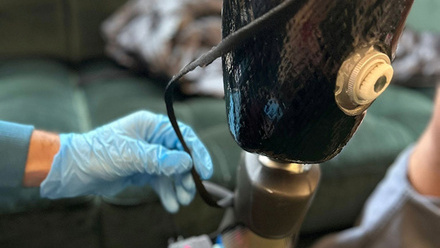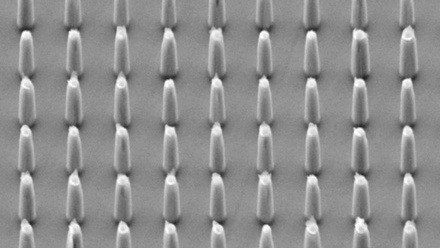Call for Papers: Interdisciplinary Science Reviews
An open call to submit manuscripts for a special issue about 'Plasticity' for Interdisciplinary Science Reviews
Special issue Title: The Shapeshifters; Plasticity from Cells to Society

Introduction
Plasticity, the ability to be molded in various forms while maintaining a core identity, is a term that is increasingly used within various fields of science, e.g. neuroscience, plant- and cell biology, and within the humanities. However, the meaning and use of plasticity varies between different fields. What type of epistemological work does the term plasticity do in different scholarly fields? Can a general theory of plasticity be developed that will encompass some core features but also allow space for unique usages? These are the questions that this special issue poses, and will try to provide and answer from various interdisciplinary perspectives.
Guest editors:
Loai Abdelmohsen (Eindhoven University, The Netherlands), Onur Basak (Utrecht Medical Center, The Netherlands), Yaron Caspi (National Taiwan University, Taipei, Taiwan), Jeff Diamanti (University of Amsterdam, The Netherlands), Esmee Geerken (University of Utrecht, The Netherlands), Tamalone van den Eijnden (University of Twente, The Netherlands).
Keywords:
Plasticity, emergence, resilience, robustness, adaptation, metabolism, capacity and ability to change, system sciences, system change, complexity, tipping points, social transitions, transformation, affordances, circular causality, permissive causality, intentionality/volition, meta plasticity, meaning making, disruptive plasticity.
Special Issue Information:
This special Issues, on the theme of “plasticity” explores the concept of plasticity across academic domains and beyond. The guest editors for this issue are group of scholars from different fields, from neuroscience, to cell biology, earth sciences, social sciences, media studies, environmental humanities and arts, united by a fascination for what the concept of plasticity means within, between and beyond our field of research. We invite researchers from all disciplines, societal stakeholders, and the arts to come to question what it means to be a shape within a shapeshifting process, a form within a form – changing, adapting, evolving, or mutating, along with its environment, and to submit these thoughts, formulated within manuscripts, to this special issue; The Shapeshifters; plasticity from cells to society. Specifically, we invite scholars as individual or as collectives from all disciplines to submit manuscripts that connect, bridge and define plasticity within and between various fields; we are especially keen on ideas exploring how plasticity may be of use in fields that currently do not use the term. Scholars are invited (but not restricted) to think along four interdisciplinary themes, that has been discussed in four dedicated panel discussions during a symposium organised in Amsterdam, May 30th /31st, 2024. These are: (I) Complexity and Circular Causation, (ii) Environment, (iii)Time, and (iv) Epistemic Cultures.
For a full description of the symposium, see The Shapeshifters Symposium. Footage may be found here: Shapeshifters Symposium Recording.
Manuscript submission information
Submission deadline: You are invited to submit your manuscript at any time before the submission deadline of 1 April 2025.
We invite and encourage authors to submit their original and high-quality manuscripts to this special issue. All submissions will undergo a rigorous peer-review process by at least two independent reviewers to ensure high-quality contributions and scientific validity. Papers will be published on-line immediately after acceptance.
Please submit your manuscript through the journal manuscript submission system. Importantly, once submission on the electronic platform was completed, please send an email to the guest editor: [email protected] to inform about the manuscript submission. Manuscripts must be submitted exclusively through the above-mentioned link on the journal's submission system. Any submissions made through other channels, or ones where the guest editors was not informed, will not be considered for inclusion in this special issue.
Please ensure you read the Guide for Authors before writing your manuscript. Any submissions lacking the correct formatting, declarations, ethical approvals, or related materials will not be allowed to proceed to the review stage. If the manuscripts fail to meet the standards in terms of English language, content, or relevance, they will be declined.
For any inquiries about the appropriateness of contribution topics, please contact the following corresponding Guest Editors, Dr Yaron Caspi or Dr Esmee Geerken, E-mails: [email protected]; [email protected].







